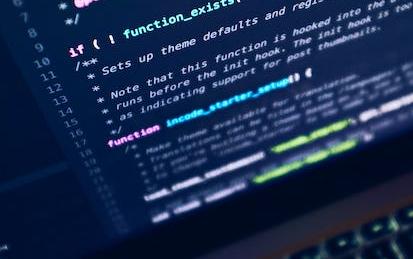

Our Courses

Introduction to Convolutions with TensorFlow
This is a self-paced lab that takes place in the Google Cloud console. A convolution is a filter that passes over an image, processes it, and extracts features that show a commonality in the image. In this lab you'll see how they work, and try processing an image to extract features from it! You also explore pooling, which compresses your image and further emphasizes the features.
-
Course by

-
 Self Paced
Self Paced
-
 1 hour
1 hour
-
 English
English

Generative Deep Learning with TensorFlow
In this course, you will: a) Learn neural style transfer using transfer learning: extract the content of an image (eg. swan), and the style of a painting (eg. cubist or impressionist), and combine the content and style into a new image.
-
Course by

-
 Self Paced
Self Paced
-
 17 hours
17 hours
-
 English
English

Simple Recurrent Neural Network with Keras
In this hands-on project, you will use Keras with TensorFlow as its backend to create a recurrent neural network model and train it to learn to perform addition of simple equations given in string format.
-
Course by

-
 Self Paced
Self Paced
-
 3 hours
3 hours
-
 English
English

Deep-Dive into Tensorflow Activation Functions
You've learned how to use Tensorflow. You've learned the important functions, how to design and implement sequential and functional models, and have completed several test projects. What's next? It's time to take a deep dive into activation functions, the essential function of every node and layer of a neural network, deciding whether to fire or not to fire, and adding an element of non-linearity (in most cases). In this 2 hour course-based project, you will join me in a deep-dive into an exhaustive list of activation functions usable in Tensorflow and other frameworks.
-
Course by

-
 Self Paced
Self Paced
-
 2 hours
2 hours
-
 English
English

Orchestrating a TFX Pipeline with Airflow
This is a self-paced lab that takes place in the Google Cloud console. In this lab, you'll learn to create your own machine learning pipelines using TensorFlow Extended (TFX) and Apache Airflow as the orchestrator.
-
Course by

-
 Self Paced
Self Paced
-
 2 hours
2 hours
-
 English
English

Microsoft Azure Machine Learning for Data Scientists
Machine learning is at the core of artificial intelligence, and many modern applications and services depend on predictive machine learning models. Training a machine learning model is an iterative process that requires time and compute resources. Automated machine learning can help make it easier.
-
Course by

-
 Self Paced
Self Paced
-
 11 hours
11 hours
-
 English
English

Learning TensorFlow: the Hello World of Machine Learning
This is a self-paced lab that takes place in the Google Cloud console. In this lab, you learn the basic ‘Hello World' of machine learning. Instead of programming explicit rules in a language such as Java or C++, you build a system that is trained on data to infer the rules that determine a relationship between numbers.
-
Course by

-
 Self Paced
Self Paced
-
 1 hour
1 hour
-
 English
English

TensorFlow for AI: Get to Know Tensorflow
This guided project course is part of the "Tensorflow for AI" series, and this series presents material that builds on the first course of DeepLearning.
-
Course by

-
 Self Paced
Self Paced
-
 3 hours
3 hours
-
 English
English

TensorFlow: Advanced Techniques
About TensorFlow TensorFlow is an end-to-end open-source platform for machine learning. It has a comprehensive, flexible ecosystem of tools, libraries, and community resources that lets researchers push the state-of-the-art in ML, and developers easily build and deploy ML-powered applications. TensorFlow is commonly used for machine learning applications such as voice recognition and detection, Google Translate, image recognition, and natural language processing. About this Specialization Expand your knowledge of the Functional API and build exotic non-sequential model types.
-
Course by

-
 Self Paced
Self Paced
-
 English
English

DeepLearning.AI TensorFlow Developer
TensorFlow is one of the most in-demand and popular open-source deep learning frameworks available today. The DeepLearning.AI TensorFlow Developer Professional Certificate program teaches you applied machine learning skills with TensorFlow so you can build and train powerful models. In this hands-on, four-course Professional Certificate program, you’ll learn the necessary tools to build scalable AI-powered applications with TensorFlow. After finishing this program, you’ll be able to apply your new TensorFlow skills to a wide range of problems and projects.
-
Course by

-
 Self Paced
Self Paced
-
 English
English

TensorFlow 2 for Deep Learning
This Specialization is intended for machine learning researchers and practitioners who are seeking to develop practical skills in the popular deep learning framework TensorFlow. The first course of this Specialization will guide you through the fundamental concepts required to successfully build, train, evaluate and make predictions from deep learning models, validating your models and including regularisation, implementing callbacks, and saving and loading models. The second course will deepen your knowledge and skills with TensorFlow, in order to develop fully customised deep learning mode
-
Course by

-
 Self Paced
Self Paced
-
 English
English

Create Machine Learning Models in Microsoft Azure
Machine learning is the foundation for predictive modeling and artificial intelligence. If you want to learn about both the underlying concepts and how to get into building models with the most common machine learning tools this path is for you. In this course, you will learn the core principles of machine learning and how to use common tools and frameworks to train, evaluate, and use machine learning models. This course is designed to prepare you for roles that include planning and creating a suitable working environment for data science workloads on Azure.
-
Course by

-
 Self Paced
Self Paced
-
 13 hours
13 hours
-
 English
English

Building Deep Learning Models with TensorFlow
The majority of data in the world is unlabeled and unstructured. Shallow neural networks cannot easily capture relevant structure in, for instance, images, sound, and textual data. Deep networks are capable of discovering hidden structures within this type of data. In this course you’ll use TensorFlow library to apply deep learning to different data types in order to solve real world problems.
-
Course by

-
 Self Paced
Self Paced
-
 7 hours
7 hours
-
 English
English

Natural Language Processing
Natural Language Processing (NLP) is a subfield of linguistics, computer science, and artificial intelligence that uses algorithms to interpret and manipulate human language. This technology is one of the most broadly applied areas of machine learning and is critical in effectively analyzing massive quantities of unstructured, text-heavy data.
-
Course by

-
 Self Paced
Self Paced
-
 English
English

Build Multilayer Perceptron Models with Keras
In this 45-minute long project-based course, you will build and train a multilayer perceptronl (MLP) model using Keras, with Tensorflow as its backend.
-
Course by

-
 3 hours
3 hours
-
 English
English

Deep Learning
The Deep Learning Specialization is a foundational program that will help you understand the capabilities, challenges, and consequences of deep learning and prepare you to participate in the development of leading-edge AI technology. In this Specialization, you will build and train neural network architectures such as Convolutional Neural Networks, Recurrent Neural Networks, LSTMs, Transformers, and learn how to make them better with strategies such as Dropout, BatchNorm, Xavier/He initialization, and more.
-
Course by

-
 Self Paced
Self Paced
-
 English
English

Deploy Models with TensorFlow Serving and Flask
In this 2-hour long project-based course, you will learn how to deploy TensorFlow models using TensorFlow Serving and Docker, and you will create a simple web application with Flask which will serve as an interface to get predictions from the served TensorFlow model.
-
Course by

-
 Self Paced
Self Paced
-
 3 hours
3 hours
-
 English
English

Deep Learning with Tensorflow
Much of theworld's data is unstructured. Think images, sound, and textual data. Learn how to apply Deep Learning with TensorFlow to this type of data to solve real-world problems.
-
Course by

-
 English
English

Creating Multi Task Models With Keras
In this 1 hour long guided project, you will learn to create and train multi-task, multi-output models with Keras. You will learn to use Keras' functional API to create a multi output model which will be trained to learn two different labels given the same input example. The model will have one input but two outputs. A few of the shallow layers will be shared between the two outputs, you will also use a ResNet style skip connection in the model. If you are familiar with Keras, you have probably come across examples of models that are trained to perform multiple tasks.
-
Course by

-
 Self Paced
Self Paced
-
 3 hours
3 hours
-
 English
English

Microsoft Azure Data Scientist Associate (DP-100)
This Professional Certificate is intended for data scientists with existing knowledge of Python and machine learning frameworks like Scikit-Learn, PyTorch, and Tensorflow, who want to build and operate machine learning s…
-
Course by

-
 Self Paced
Self Paced
-
 English
English

Data Engineering, Big Data, and Machine Learning on GCP
This five-week, accelerated online specialization provides participants a hands-on introduction to designing and building data processing systems on Google Cloud Platform. Through a combination of presentations, demos, and hand-on labs, participants will learn how to design data processing systems, build end-to-end data pipelines, analyze data and carry out machine learning.
-
Course by

-
 Self Paced
Self Paced
-
 English
English

TensorFlow: Data and Deployment
Continue developing your skills in TensorFlow as you learn to navigate through a wide range of deployment scenarios and discover new ways to use data more effectively when training your machine learning models. In this four-course Specialization, you’ll learn how to get your machine learning models into the hands of real people on all kinds of devices. Start by understanding how to train and run machine learning models in browsers and in mobile applications.
-
Course by

-
 Self Paced
Self Paced
-
 English
English

Build a Deep Learning Based Image Classifier with R
In this 45-min guided project, you will learn the basics of using the Keras interface to R with Tensorflow as its backend to solve an image classification problem.
-
Course by

-
 Self Paced
Self Paced
-
 3 hours
3 hours
-
 English
English

Encoder-Decoder Architecture - 한국어
이 과정은 기계 번역, 텍스트 요약, 질의 응답과 같은 시퀀스-투-시퀀스(Seq2Seq) 작업에 널리 사용되는 강력한 머신러닝 아키텍처인 인코더-디코더 아키텍처에 대한 개요를 제공합니다. 인코더-디코더 아키텍처의 기본 구성요소와 이러한 모델의 학습 및 서빙 방법에 대해 알아봅니다. 해당하는 실습 둘러보기에서는 TensorFlow에서 시를 짓는 인코더-디코더 아키텍처를 처음부터 간단하게 구현하는 코딩을 해봅니다.
-
Course by

-
 Self Paced
Self Paced
-
 English
English

Image Classification with CNNs using Keras
In this 1-hour long project-based course, you will learn how to create a Convolutional Neural Network (CNN) in Keras with a TensorFlow backend, and you will learn to train CNNs to solve Image Classification problems.
-
Course by

-
 Self Paced
Self Paced
-
 3 hours
3 hours
-
 English
English



